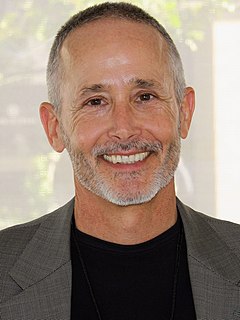A Quote by Philip Kitcher
It is hard to hide our genes completely. However devoted someone may be to the privacy of his genotype, others with enough curiosity and knowledge can draw conclusions from the phenotype he presents and from the traits of his relatives.
Related Quotes
There's this very interesting and complicated connection between our environment and our genes and the traits that come out of the environment plus genes. And there's huge potential. I mean we see amazing abilities. Marie Curie, Albert Einstein. All sorts of arts, and literature and so forth. These are not typical traits of everybody on earth.
Someone who does not draw strength from himself and who is incapable of finding the meaning of his life within himself will...seek the map to his own orientation somewhere outside himself-in some ideology, organization, or society, and then, however active he may appear to be, he is merely waiting, depending. He waits to see what others will do, or what roles they will assign to him, and he depends on them-and if they don't do anything or if they botch things, he succumbs to disillusion, despair, and ultimately, resignation.
If we wish to draw philosophical conclusions about our own existence, our significance, and the significance of the universe itself, our conclusions should be based on empirical knowledge. A truly open mind means forcing our imaginations to conform to the evidence of reality, and not vice versa, whether or not we like the implications.
A real man doesn't have to run from his mother, and may even have to face the reality that no great deed is going to be great enough for him to ransom himself completely, and he may always be in his mother's debt. If he understands that . . . he won't have to feel guilty, and he won't have to please her completely. He can go ahead and be nice to her and let her be part of his life.
This leads us to note down in our psychological chart of the mass-man of today two fundamental traits: the free expansion of his vital desires, and, therefore, of his personality; and his radical ingratitude towards all that has made possible the ease of his existence. These traits together make up the well-known psychology of the spoilt child.
He looked at her. She was pretty still, with thick hair and soft eyes, and she moved so gracefully that it almost seemed as though she were gliding. He'd seen beautiful women before, though, women who caught his eye, but to his mind, they usually lacked the traits he found most desirable. Traits like intelligence, confidence, strength of spirit, passion, traits that inspired others to greatness, traits he aspired to himself.
What makes a free thinker is not his beliefs, but the way in which he holds them. If he holds them because his elders told him they were true when he was young, or if he holds them because if he did not he would be unhappy, his thought is not free; but if he holds them because, after careful thought, he finds a balance in their favor, then his thought is free, however odd his conclusions may seem.
We have no knowledge, that is, no general principles drawn from the contemplation of particular facts, but what has been built up by pleasure, and exists in us by pleasure alone. The Man of Science, the Chemist and Mathematician, whatever difficulties and disgusts they may have had to struggle with, know and feel this. However painful may be the objects with which the Anatomist's knowledge is connected, he feels that his knowledge is pleasure; and where he has no pleasure he has no knowledge.
Michael Bradley has the stuff of leadership; he works hard and can break up the opponent's play. However, that's not enough to justify his philanthropic attitude towards possession, the generous portion of balls that he contributes to his foes. His sloppiness constantly culminates in unnecessary goals.
The trouble is that privacy is at once essential to, and in tension with, both freedom and security. A cabinet minister who keeps his mistress in satin sheets at the French taxpayer's expense cannot justly object when the press exposes his misuse of public funds. Our freedom to scrutinise the conduct of public figures trumps that minister's claim to privacy. The question is: where and how do we draw the line between a genuine public interest and that which is merely what interests the public?
Granted, we may try to help our own family members because they share our DNA. Or help someone else in expectation that they will help us later. But when you look at what we admire as the most generous manifestations of altruism, they are not based on kin selection or reciprocity. An extreme example might be Oskar Schindler risking his life to save more than a thousand Jews from the gas chambers. That's the opposite of saving his genes.






























